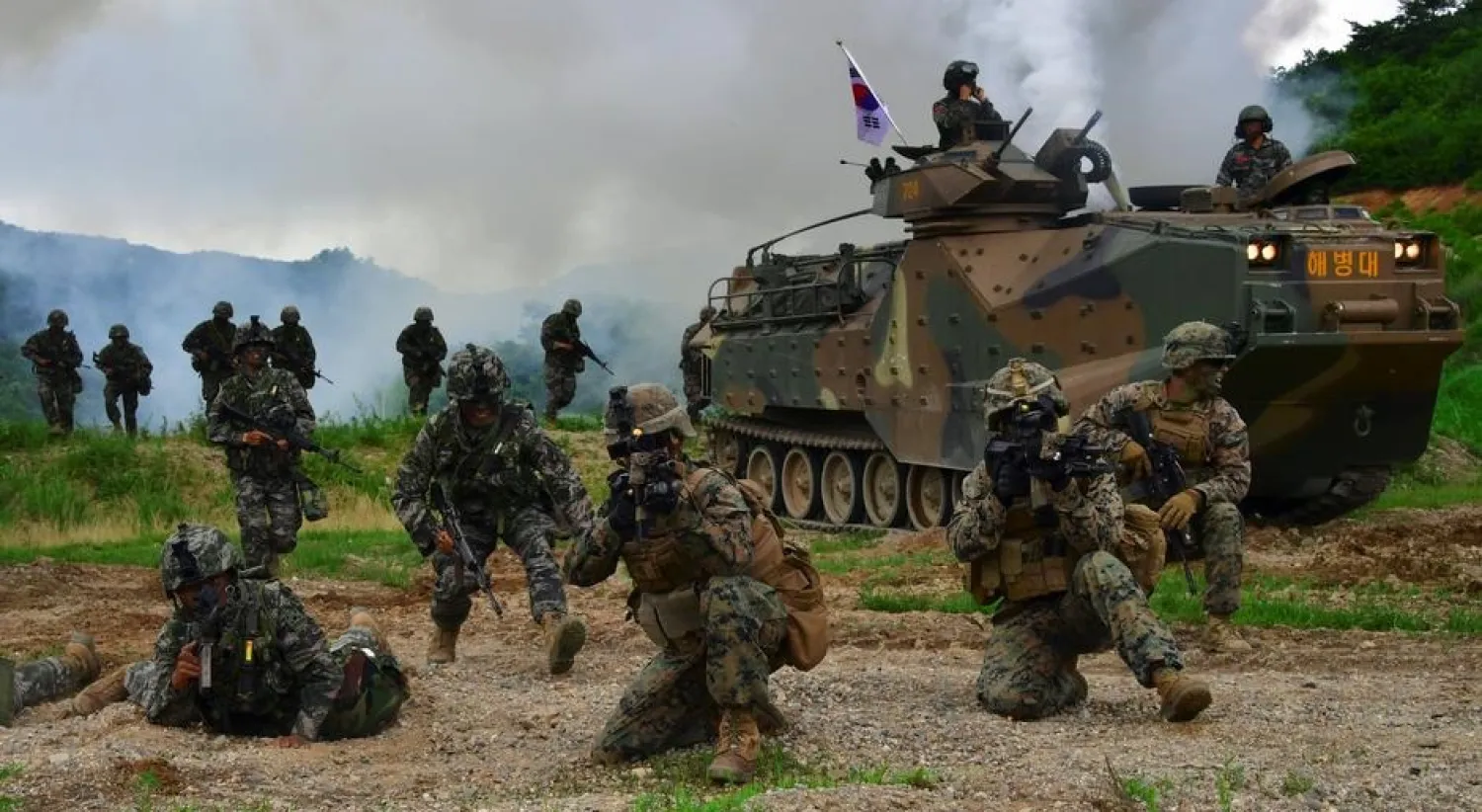International pressure must be exerted on North Korea until it proves it is willing to give up its nuclear program, new Japanese Foreign Minister Taro Kono demanded on Tuesday.
"It's not the time to discuss (the resumption of) six-party talks," Kono said, referring to international negotiations involving both Koreas, the United States, Russia, China and Japan for the denuclearization of the Korean peninsula.
"It's time to exert pressure," he said in an interview with a group of reporters.
He made his remarks a day after the United States and South Korea kicked off long-planned annual joint military drills that have heightened tensions with Pyongyang.
The North deemed the drills as “reckless”, warning that they are a step forward towards nuclear conflict.
South Korean President Moon Jae-in said the joint drills, called Ulchi Freedom Guardian, were purely defensive and did not aim to increase tension on the peninsula, but North Korea denounced them as a rehearsal for war.
"There is no intent at all to heighten military tension on the Korean peninsula as these drills are held annually and are of a defensive nature," Moon told cabinet ministers.
"North Korea should not exaggerate our efforts to keep peace nor should they engage in provocations that would worsen the situation, using (the exercise) as an excuse," he said.
The joint US-South Korean drills last until August 31 and involve tens of thousands of troops as well as computer simulations designed to prepare for war with a nuclear-capable North Korea.
The United States also describes them as "defensive in nature", a term North Korean state media has dismissed as a "deceptive mask".
"It's to prepare if something big were to occur and we needed to protect ROK," said Michelle Thomas, a US military spokeswoman, referring to South Korea by its official name, the Republic of Korea.
North Korea views such exercises as preparations for invasion and has fired missiles and taken other actions to show its anger over military drills in the past.
"This is aimed to ignite a nuclear war on the Korean peninsula at any cost," the North's KCNA news agency said.
"The situation on the Korean peninsula has plunged into a critical phase due to the reckless north-targeted war racket of the war maniacs."
North and South Korea are technically still at war after the 1950-1953 Korean War ended with a truce, not a peace treaty.
North Korea's rapid progress in developing nuclear weapons and missiles capable of reaching the US mainland has fueled a surge in regional tension and UN-led sanctions appear to have failed to bite deeply enough to change its behavior.
China, North Korea's main ally and trading partner, has urged the United States and South Korea to scrap the exercises. Russia has also asked for the drills to stop but the United States has not backed down.
Speaking in Beijing, Chinese Foreign Ministry spokeswoman Hua Chunying said North and South Korea and the United States all needed to make more effort to ease tension.
"We think that South Korea and the United States holding joint drills is not beneficial to easing current tensions or efforts by all sides to promote talks," she told a daily news briefing.
There will be no field training during the current exercise, according to US Forces Korea.
The United States has about 28,000 troops in South Korea. About 17,500 US service members are participating in the exercise this month, down from 25,000 last year, according to the Pentagon.
US Defense Secretary Jim Mattis said on Sunday the reduction in the number of US troops taking part reflected a need for fewer personnel and was not because of tension with North Korea.
Other South Korean allies are also joining this year, with troops from Australia, Britain, Canada, Colombia, Denmark, the Netherlands and New Zealand taking part.
Meanwhile, a report seen by Reuters on Monday revealed that Pyongyang has earned millions of dollars in exports. This will likely raise doubts about the impact of sanctions to pressure North Korea into dismantling its nuclear and ballistic missile programs.
The confidential United Nations report found North Korea evaded UN sanctions by "deliberately using indirect channels" to export banned commodities and had generated $270 million between October 2016 and May 2017.
The "lax enforcement" of existing sanctions and Pyongyang’s "evolving evasion techniques" were undermining the UN goal of getting North Korea to abandon its nuclear and ballistic missile programs, according to the report by independent UN experts who monitor sanctions violations for the UN Security Council.
The Security Council unanimously imposed new sanctions on North Korea on August 5 that could slash its $3 billion annual export revenue by a third. The latest sanctions were imposed after North Korea tested two intercontinental ballistic missiles in July.









